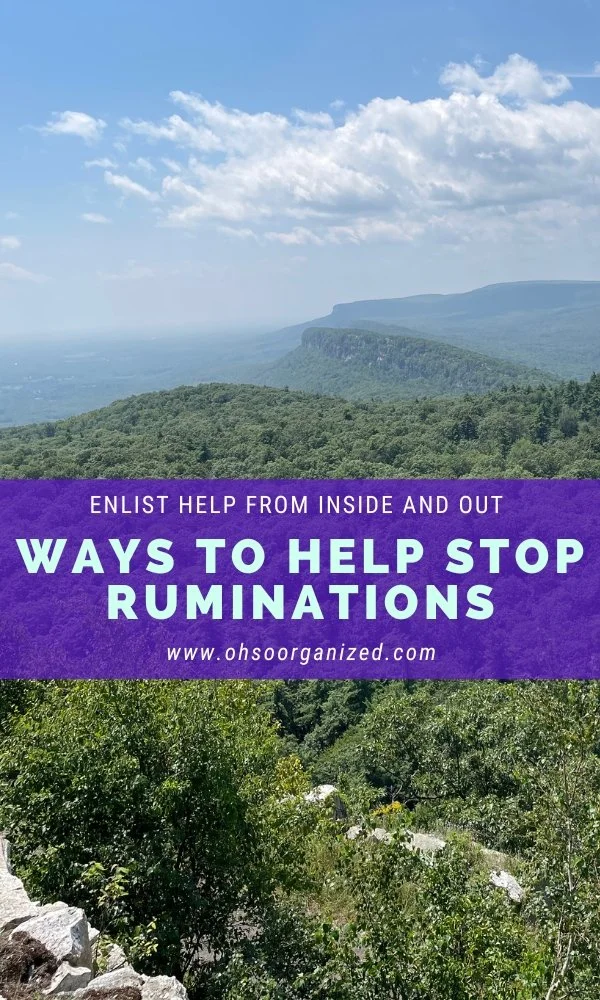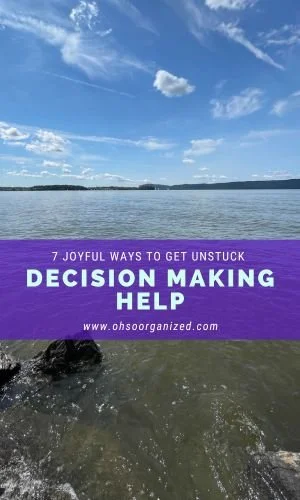Rumination is a common cognitive pattern that feeds on negative thoughts and worries. Noom, a behavior change wellness company, says, "Rumination is thinking repetitively about causes, processes, and consequences of something that’s happening or happened...It's focusing on the problem over and over again instead of looking for solutions."
To improve your mental well-being and ability to move forward, shift from ruminating to focusing on solutions. Help is here.
6 Self-Help Strategies to Stop Ruminations
1. Mindfulness and Self-Awareness: Practice mindfulness to help develop awareness when you're ruminating. Pay attention to your thought patterns and notice when you're stuck in negative loops. Self-awareness is the first step in breaking this cycle.
2. Problem-Solving Techniques: Once you notice you're ruminating, shift your thinking towards problem-solving. Instead of dwelling on the causes or consequences of a problem, focus on finding solutions.
3. Positive Visualization: Visualize the desired outcome rather than getting stuck in the negative aspects. Imagine what a successful resolution looks like and how it would feel. This positive visualization can stop the negative thought loop and motivate you to take action.
4. Time-Limited Reflection: Give yourself a specific amount of time to reflect on the causes and consequences, but set a timer. Once the time is up, switch your focus to solutions. This technique helps prevent excessive rumination.
5. Action-Oriented Approach: Take small, actionable steps toward solving the problem. No matter how tiny, each action will build momentum and confidence.
6. Growth Mindset: Consider what you can learn from the situation. Challenges and setbacks provide helpful insights that can be used in the future.
“To improve your mental well-being and ability to move forward, shift from ruminating to focusing on solutions.”
5 Ways Virtual Professional Organizers Can Help
What if you want additional assistance to break your rumination cycle? Virtual professional organizers can provide valuable help, especially when you're overwhelmed or stuck in those negative loops. Here are five ways organizers can help:
1. Objective Perspective: A professional organizer can offer an unbiased viewpoint and help you view things differently.
2. Expertise: Professional organizers are skilled in organizational strategies, problem-solving, and collaborating. With additional support, you will move forward with less stress and more ease.
3. Accountability: Having an accountability buddy is an effective strategy for making progress. A virtual professional organizer can help you set goals, track progress, and encourage positive actions.
4. Customized Solutions: Organizers provide personalized strategies to address your specific challenges and to help create a more organized and positive environment.
5. Flexibility: With virtual professional organizers, you can access their services from anywhere, making it convenient and flexible to fit into your schedule and location.
I encourage you to find a virtual professional organizer who can help with your goals and needs and who you feel comfortable working with. They can be a valuable partner in your journey for less ruminating and more solving.
How can I help? Contact me, Linda, at 914-271-5673, linda@ohsoorganized.com, or click here.
















